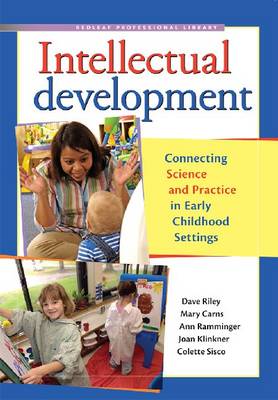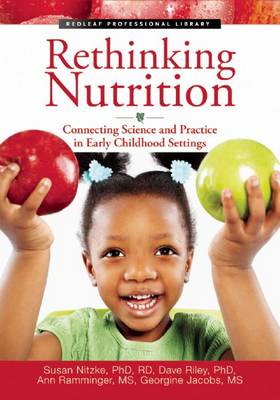Redleaf Professional Library
2 total works
Intellectual Development
by David Riley, Joan Klinkner, Mary Carns, and Ann Ramminger
Published 1 January 2008
To the untrained eye, many of the common activities in early childhood settings may not seem educational. In reality, research shows that these activities are actually learning tools that promote children's intellectual development.
Why do we sort blocks and sing nursery rhymes with children, and what do they learn from these activities? Intellectual Development answers these questions and investigates the link between the best practices in early childhood education and the science of child development. This book will help teachers answer the question "Why do we do what we do?"
Chapters cover language and literacy development, early number learning, and musical and artistic development. The book also contains information on early learning standards, practice tips, and recommended readings
Why do we sort blocks and sing nursery rhymes with children, and what do they learn from these activities? Intellectual Development answers these questions and investigates the link between the best practices in early childhood education and the science of child development. This book will help teachers answer the question "Why do we do what we do?"
Chapters cover language and literacy development, early number learning, and musical and artistic development. The book also contains information on early learning standards, practice tips, and recommended readings
Rethinking Nutrition
by David Riley, Susan Nitzke, Ann Ramminger, and Georgine Jacobs
Published 1 June 2010
Nutrition has vital and long-lasting effects on children's development. Good nutrition helps children learn better and promotes lifelong healthy eating habits. Connecting current scientific research with best practices, Rethinking Nutrition provides information to help you meet and understand children's nutritional and developmental needs. Learn how to: * Promote proper nutrition for the healthy growth of children from birth to age five * Address special dietary needs, including food allergies, obesity, family preferences, and chronic diseases * Establish healthy eating and feeding habits * Use food and mealtimes to promote children's social and intellectual development * Implement food and nutrition policies in early childhood settings Each chapter also provides a series of examples that bring nutrition principles to life in early childhood settings, topic suggestions for staff discussions, sample letters to families, and a list of further readings. Extensive appendixes provide additional information on federal nutrition regulations, preventing food-borne illnesses, the USDA's MyPyramid for Preschoolers, and more. Age Focus: 0-5. Softbound, 192 pgs.

